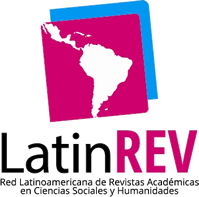Geopolítica y pedagogía: las TIC como instrumento de las guerras complejas frente a sus resistencias
DOI:
https://doi.org/10.53645/revpropulsion.v1i1.5Keywords:
geopolitics, education, ICT, war, informationAbstract
The article was based on a geopolitical approach that considers the transmission of thought as one of the areas susceptible to world domination. It aims to contribute to the debate on the implications - on a planetary scale - of the use of information and communication technologies in planetary conflicts, seen as an educational tool at the service of a scientific-industrial-military- financial complex aimed at winning wars that maintain a hegemonic imperative. A transductive theoretical-documentary methodology was used, which made it possible not to neglect the criteria of the truth-violence relationship, visualized in existing pedagogical resistances, which build possible worlds (today also virtual). In the same way, a network of coercion and domination related to the different explanations of reality and its reproduction was observed. The analysis of the results showed: on the one hand, the forms of control of thought characteristic of a system that commercializes virtual space and, on the other, the possibility of beginning a process of democratization of the same, with a plural, open and public participation of digital technologies. He also came to construct a series of final reflections aimed at defining the course of digitalization to avoid it being the sign of a final war.
Downloads
References
Adorno, T. W. (2001). Epistemología y Ciencias Sociales. Frónesis, Cátedra, Universitat de Valencia.
Altvater, E., & Mahnkopf, B. (2002). Las limitaciones de la globalización. Economía, ecología y política de la globalización. Siglo XXI, CEIICH UNAM.
American Indian Code Talkers. (s. f.). The National WWII Museum | New Orleans. Recuperado 5 de julio de 2020, de https://www.nationalww2museum.org/war/articles/american- indian-code-talkers
Benedetti, M. (2004). Inventario tres: Poesia completa, 1991-2001. Seix Barral.
BM. (2020). Área selvática (% del área de tierra)—Brazil | Data. https://datos.bancomundial. org/indicador/AG.LND.FRST.ZS?locations=BR
Caballero, F. S. (2016). Capitalismo Cognitivo y Economía Social del Conocimiento. La lucha por el Código. Ediciones Ciespal.
Ceceña, A. E. (s. f.). Derivas del mundo en el que caben todos los mundos. CLACSO. http:// biblioteca.clacso.edu.ar/ar/libros/becas/cecena.pdf
Cornell, P. (2020). Technical and Cybersecurity Vulnerabilities (INTERNATIONAL GRID INTEGRATION:, pp. 16-16). Atlantic Council; JSTOR. https://doi.org/10.2307/resrep23541.7 Engineering and Technology. (2020, febrero 26). Top Universities. https://www.topuniversities.com/university-rankings/university-subject-rankings/2020/engineering-technology Giroux, H. A. (1983). Ideology and agency in the process of schooling. The Journal of Education,165(1), 12-34. JSTOR.
Giroux, H. A. (2013). The Disimagination Machine and the Pathologies of Power. symplokē, 21(1-2), 257-269. JSTOR. https://doi.org/10.5250/symploke.21.1-2.0257
González Casanova, P. (2005). Las nuevas ciencias y las humanidades. De la Academia a la Polítca. Anthropos, UNAM IIS.
González Casanova, P. (2017). Explotación, colonialismo y lucha por la democracia en América Latina. Akal.
Lefebvre, H. (1991). Critique of Everyday Life: Foundations for a sociology of the everyday. Verso.
Ministerio de Defensa. (2003). Estudio Preliminar de la Operación: Libertad para Irak. Instituto Español de Estudios Estratégicos. https://dialnet.unirioja.es/servlet/libro?codigo=562707 Nateras, L. (2020, febrero 13). Australia arde: ¿Antropogénesis o cambio climático? América Latina en movimiento. https://www.alainet.org/es/articulo/204745
OMS. (2020, marzo 11). Alocución de apertura del Director General de la OMS en la rueda de prensa sobre la COVID-19 celebrada el 11 de marzo de 2020. https://www.who.int/es/ dg/speeches/detail/who-director-general-s-opening remarks-at-the-media-briefing-on-covid-19---11-march-2020
ONU. (2015, septiembre 25). Objetivos y metas de desarrollo sostenible – Desarrollo Sostenible. https://www.un.org/sustainabledevelopment/es/objetivos-de-desarrollo-sostenible/
Prada, A. (2019). Crítica del hiper-capitalismo digital. Catarata, Fundación 1o de Mayo. Raffestin, C. (2011). Por un geografía del poder. El Colegio de Michoacán.
Reynoso, C. (2015). Lenguaje y pensamiento: Tácticas y estrategias del relativismo linguístico.Sb editorial.
Rodríguez, A. B. (2019). Algunos problemas de la investigación antropológica actual. En M. B. Heras (Ed.), Mercedes Olivera (pp. 679-700). CLACSO; JSTOR. https://doi.org/10.2307/j.ctvt6rm5c.32
Sosa Escudero, W. (2019a). Big Data. Siglo XXI, Ciencia que ladra.
Sosa Escudero, W. (2019b). Redes sociales: Educación y valores. En M. A. Solanet (Ed.), Bigdata, algoritmos, redes sociales y el rol de la educación (p. 233). Academia Nacional de
Ciencias Morales y Políticas.Staff, F. (2020, julio 5). Conalep tendrá carrera de inteligencia artificial • Forbes México. Forbes México. https://www.forbes.com.mx/noticias-conalep-tendra-carrera-de-inteligencia-artificial/
Tinnes, J. (2019). Bibliography: Humanitarian Intervention, Responsibility to Protect, Peacekeeping. Perspectives on Terrorism, 13(1), 134-162. JSTOR.
Tolstoi, L. (1905). Obras completas II. Los Cosacos-Sebastopol. Carbonell y Esteva Editores. Xataca. (2020). Los estudiantes en cuarentena de Wuhan no querían deberes, así que frieron a negativos la app remota que usaba el colegio. https://www.xataka.com/moviles/ estudiantes-cuarentena-wuhan-no-querian-deberes-asi-que-frieron-a-negativos-app- remota-que-usaba-colegio

Published
Versions
- 2020-06-11 (4)
- 2020-06-11 (3)
How to Cite
Issue
Section
Categories
License
Copyright (c) 2020 Abdiel Hernández Mendoza

This work is licensed under a Creative Commons Attribution-NonCommercial 4.0 International License.
- Esta licencia permite a los reutilizadores distribuir, remezclar, adaptar y construir sobre el material en cualquier medio o formato solo con fines no comerciales, y solo mientras se dé atribución al creador.Incluye los siguientes elementos: POR – Se debe dar crédito al creador NC – Solo se permiten usos no comerciales de la obra.







